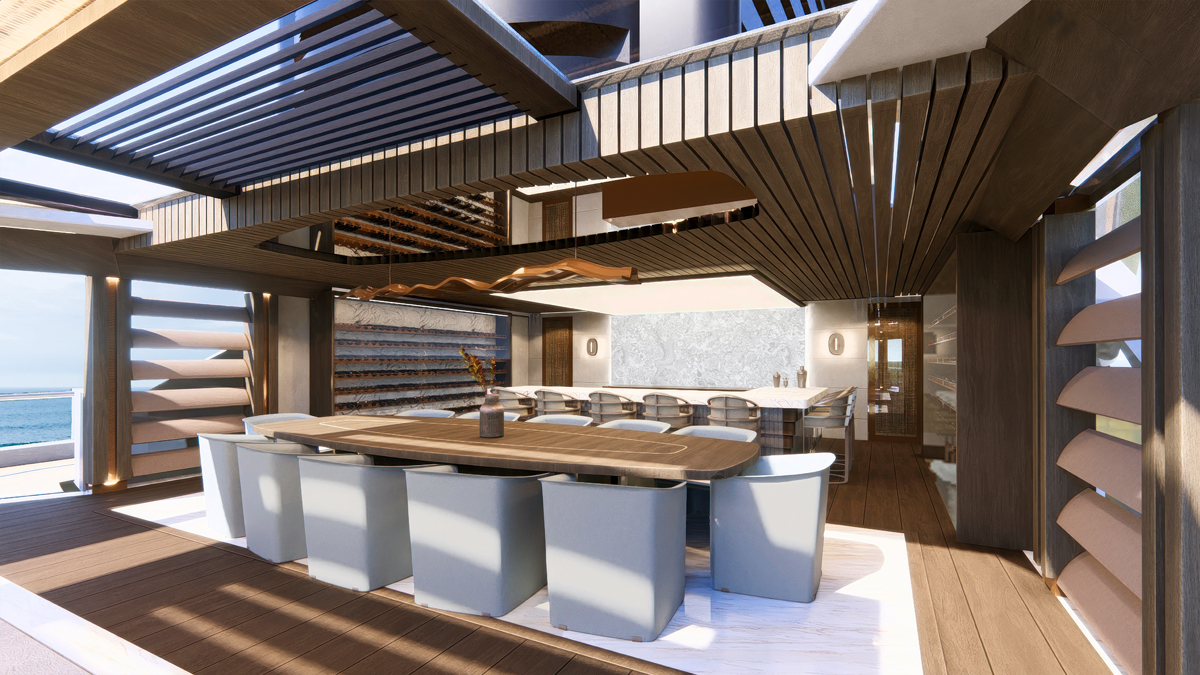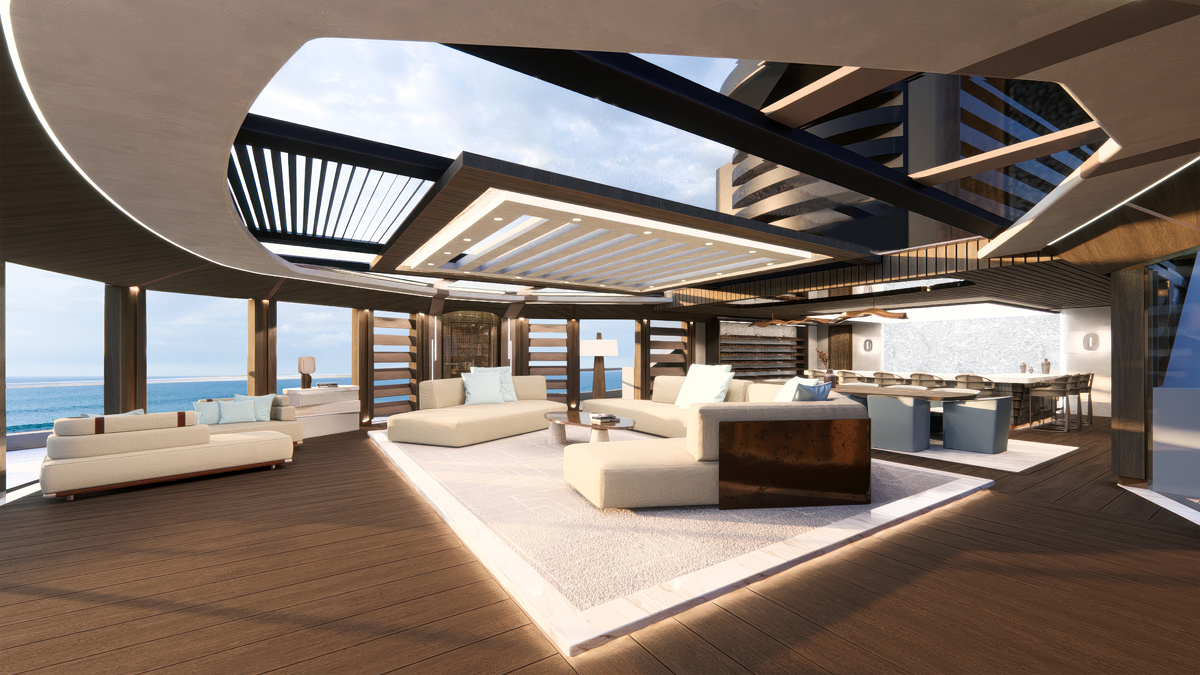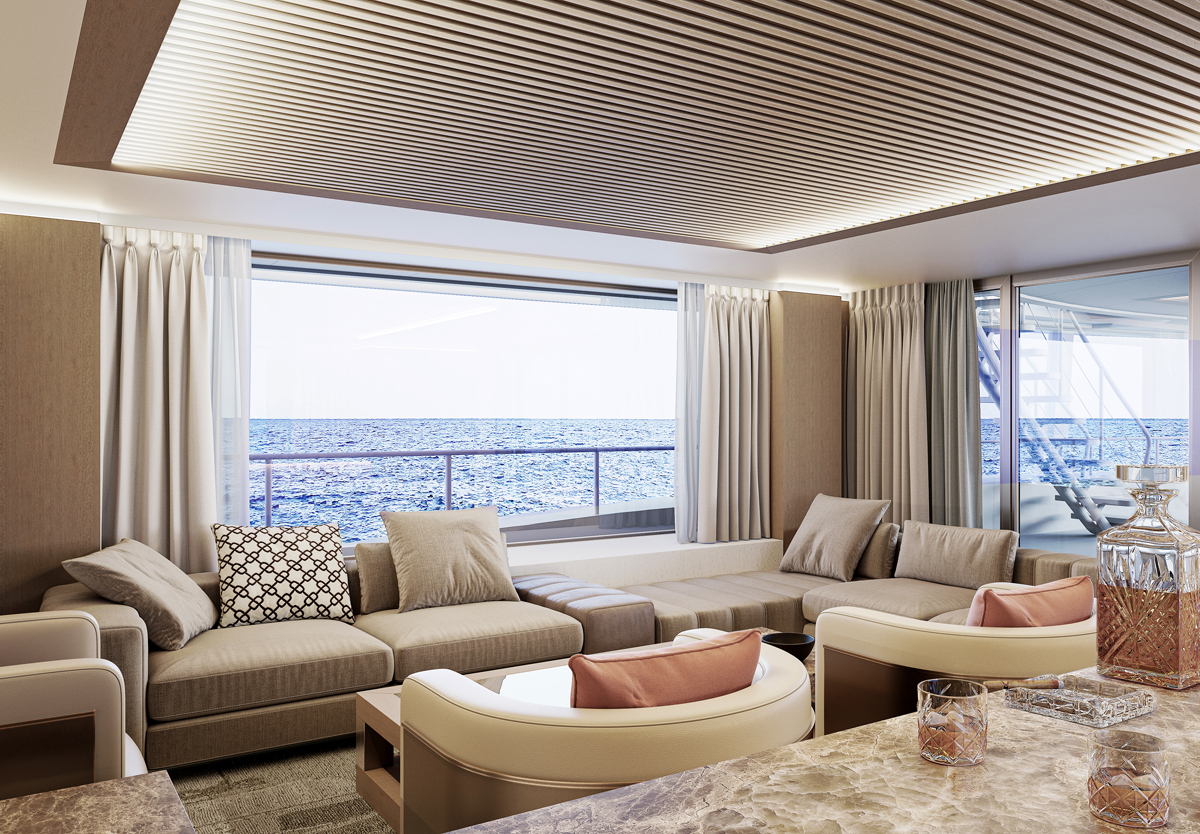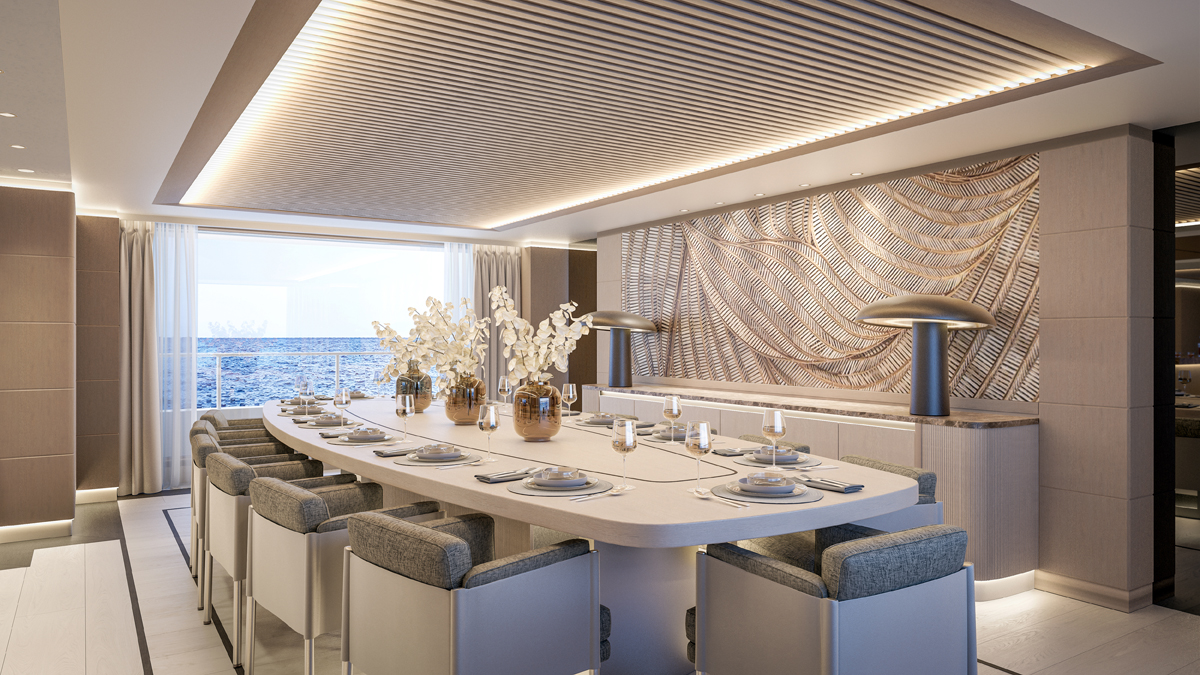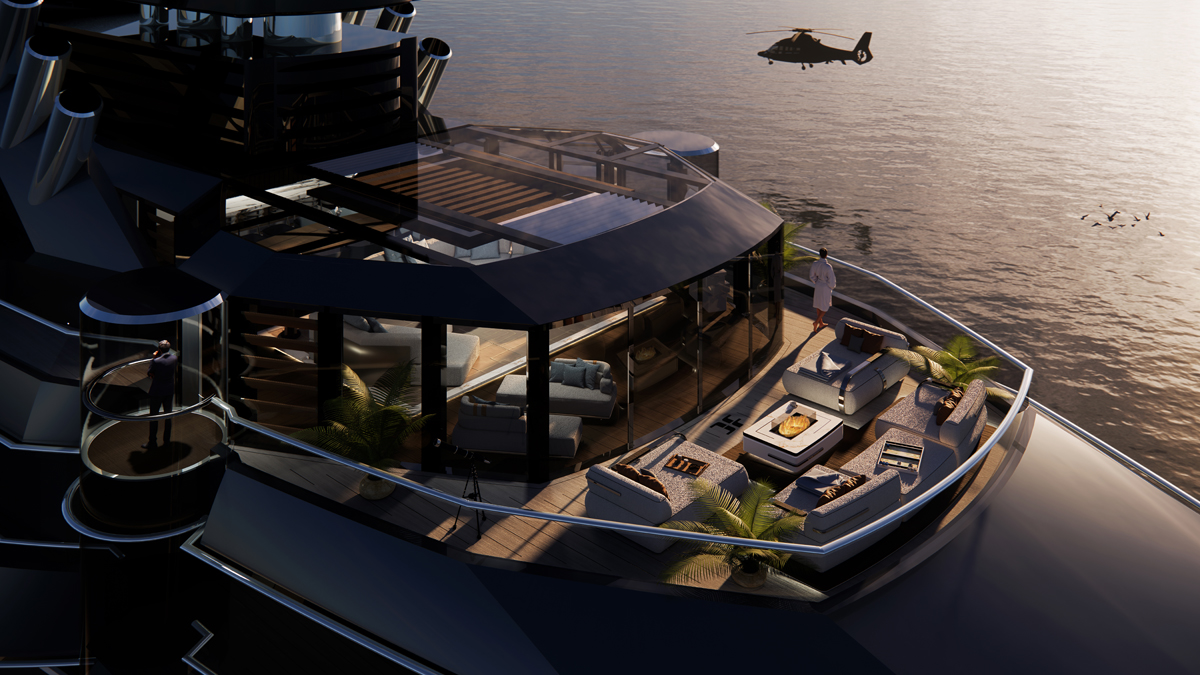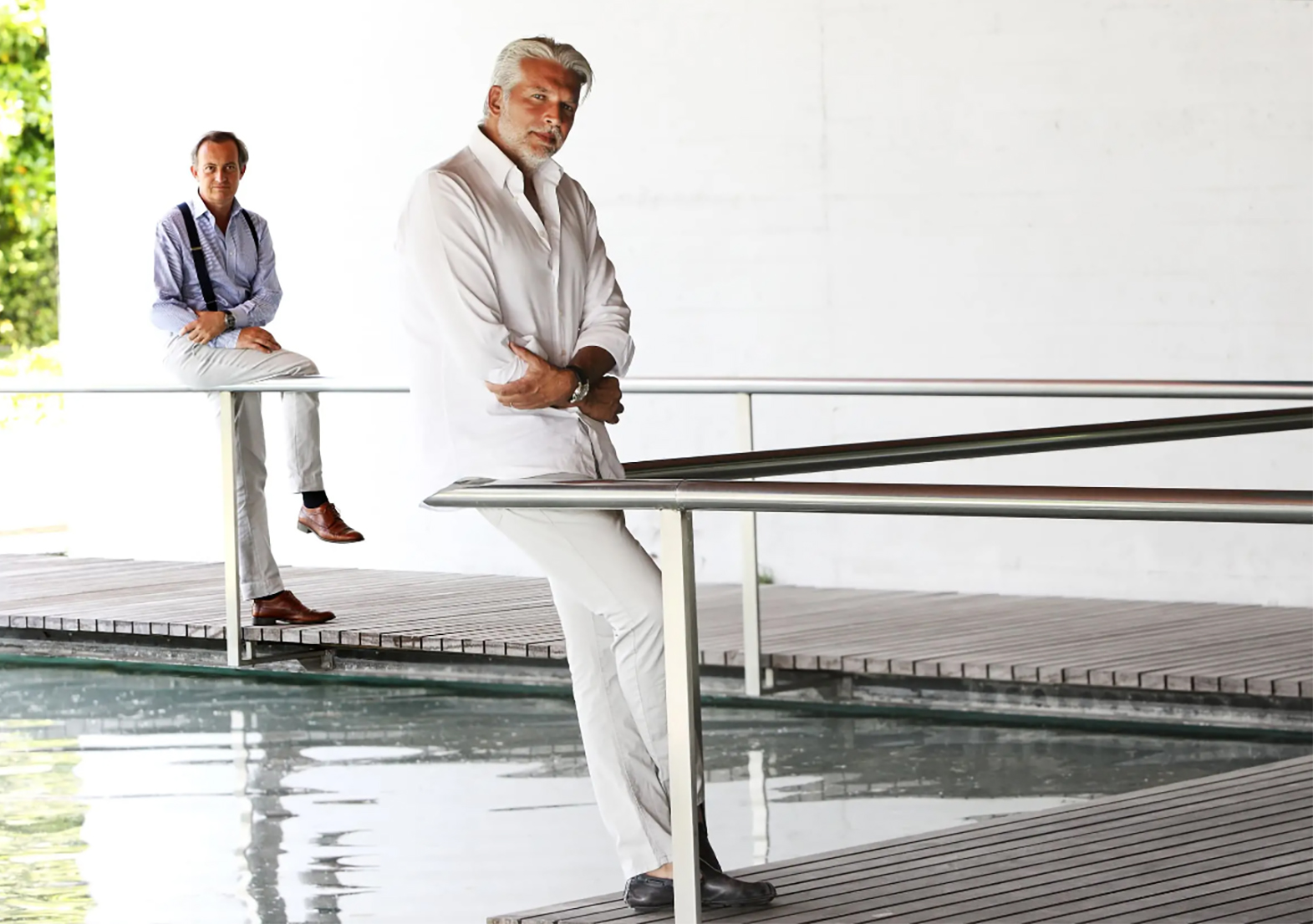By design
Designers Dan Lenard and Carlo Nuvolari are responding to changing owner expectations around environmental considerations with a new approach to sustainability and style.
21 March 2024
Carlo Nuvolari and Dan Lenard – Co-founders of the Nuvolari Lenard design house – say change is not only welcome but also something actively to be sought.
The duo feels change is what drives the language of design forward, and it is also what brings form and functionality ever closer together. For many outside observers, the outside of a yacht is what they see, and it is the flowing, sculpted lines that suggest forward design momentum.
It’s an area the Nuvolari Lenard team knows well, having created some of the most recognisable yachts in modern times, such as the 141.6-metre Nord, the 115-metre Ahpo, and the 60.3-metre Comfortably Numb, while also setting new benchmarks with innovative designs such as the 202-metre Centrefold, or the 52-metre NLPlus.
However, says Lenard, the exterior is only part of the design equation, in addition to its relationship to the interior layout and design. Having recently assumed responsibility for the art direction of the studio’s interior design department, he says he is reinforcing the form-function interaction while at the same time reinvigorating the essence of what an interior can be.
“A yacht,” Lenard explains, “is to be conceived as a whole, and separating external design from internal design reduces the possibility of elevating the entire yacht project to a higher level – that is, to that of a work of art.”
As owner attitudes change, both in terms of style and environmental considerations, there’s undoubtedly a need to strive for continual change and rejuvenate the team’s design approach.
“We clearly perceive the expectations of today’s shipowners who, regardless of their age, think differently and think younger,” says Nuvolari.
“The pandemic marked the change to a new era – interior design in recent years has often seen appearance dominate substance and excess in the use of special (as well as expensive) materials.
“We want to reverse this equation with a trend that will see the exaltation of true design, less formality in environments, less emphasis in decoration, and interior design focused entirely on the individual and wellbeing.”
To achieve this fundamental shift, the Nuvolari Lenard team are focusing in particular on two key facets – extreme attention to proportion, and the meticulous planning of the layout and the use of light.
“This is where the connection with the exterior design shows itself,” Lenard explains, “because the emphasis on light influences the relationship with the yacht’s exterior design, which determines the shape and position of the windows.”
An example of this forward shift to a new trend can be found in the Orangerie of the Centrefold project – a space that the duo say ‘sits in continuity’ with the exteriors, dominated by the themes of light and sight, with a ‘clean style that doesn’t exceed in formalism or unnecessary embellishment’.
The space is dominated by huge sweeps of glass, both wrapping the space vertically and also overhead. “It’s an interior environment of the yacht where guests are enabled to feel the emotion and sensation of being outside,” says Lenard.
Lenard explains that sustainable interest in tandem with this reconsidered approach to the interior comes another important element – the desire for greater environmental sustainability and greater customer wellbeing. It’s an aspect which forms a second driving force behind Nuvolari Lenard’s renewed interior design approach.
Nuvolari, in particular, has made this a focus, showing the effects of the usage of many of the materials and techniques used to build interiors, which in turn means he can offer shipowners a lot of information to clarify these aspects and help them in their choices.
“Often,” he says, “we tend to consider materials as ‘sustainable’ that actually only have the appearance of being sustainable, and other times we condemn the use of other materials only because we have limited – or tradition-distorted – information.”
As an example, Nuvolari points to natural leather. “We often criticise its use, preferring synthetic leathers,” he says, “but we forget that it is a by-product of the food industry that, if not used, would have to be disposed of with a serious impact on the environment.”
Such examples are rife, and it’s why Nuvolari Lenard asks its suppliers for information and data on the origin of materials and the techniques used to produce them to select those with greater environmental sustainability.
“Wellbeing has become one of the main expectations of shipowners,” Nuvolari adds, “so we are keen to inform them about how the use of certain materials and construction techniques has a significant impact on interior design.”
The team says it is taking environmental consideration further, however, to include the influence of volatile organic compounds (VOC) and the release of toxic substances in interiors that persists long after the yacht is delivered. It’s important because they can impact the quality of the air breathed – it’s a much-debated issue in civil engineering but has not yet been widely addressed in yachting.
Nuvolari Lenard is discussing construction techniques and materials that neutralise these negative effects with interior construction companies. “The success of interior design is no longer just stylistic but holistic, involving all aspects of the project – interior design, the relationship with exterior design and the knowledge and correct use of appropriate and sustainable materials and techniques,” Lenard concludes.
“This collaborative and innovative process is exactly what Nuvolari Lenard has developed and follows to realise its interior projects. It’s how we intend to create a new generation of iconic designs inside and out.”



